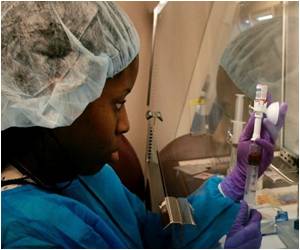
The researchers from the MRC Centre for Molecular Bacteriology and Infection at Imperial College London have succeeded in visualising persister cells in infected tissues for the first time, and have identified signals that lead to their formation.
Virtually all bacterial species form subpopulations of persisters that are tolerant to many antibiotics. Persisters are likely to be a cause of many recurrent infections, but little is known about how they arise.
The team developed a method for tracking single cells using a fluorescent protein produced by the bacteria. They showed that Salmonella, which causes gastroenteritis and typhoid fever, forms large numbers of non-replicating persisters after being engulfed by immune cells called macrophages. By adopting this non-replicating mode, Salmonella survives antibiotic treatment and lingers in the host, accounting for its ability to cause recurrent infections.
The researchers also identified factors produced by human cells that trigger bacteria to become persisters.
The study is published in the journal Science.
Advertisement











